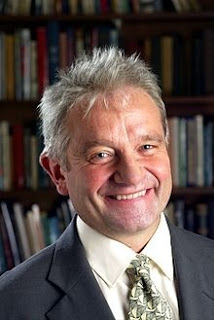 Nicholas Stern: 'I got it wrong on climate change – it's far, far worse'. Author of 2006 review speaks out on danger to economies as planet absorbs less carbon and is 'on track' for 4C rise
Nicholas Stern: 'I got it wrong on climate change – it's far, far worse'. Author of 2006 review speaks out on danger to economies as planet absorbs less carbon and is 'on track' for 4C riseLord Stern, author of the government-commissioned review on climate change that became the reference work for politicians and green campaigners, now says he underestimated the risks, and should have been more "blunt" about the threat posed to the economy by rising temperatures.
In an interview at the World Economic Forum in Davos, Stern, who is now a crossbench peer, said: "Looking back, I underestimated the risks. The planet and the atmosphere seem to be absorbing less carbon than we expected, and emissions are rising pretty strongly. Some of the effects are coming through more quickly than we thought then."
The Stern review, published in 2006, pointed to a 75% chance that global temperatures would rise by between two and three degrees above the long-term average; he now believes we are "on track for something like four ". Had he known the way the situation would evolve, he says, "I think I would have been a bit more blunt. I would have been much more strong about the risks of a four- or five-degree rise."
He said some countries, including China, had now started to grasp the seriousness of the risks, but governments should now act forcefully to shift their economies towards less energy-intensive, more environmentally sustainable technologies... Full story from link below:
Nicholas Stern: 'I got it wrong on climate change – it's far, far worse' | Environment | The Observer















